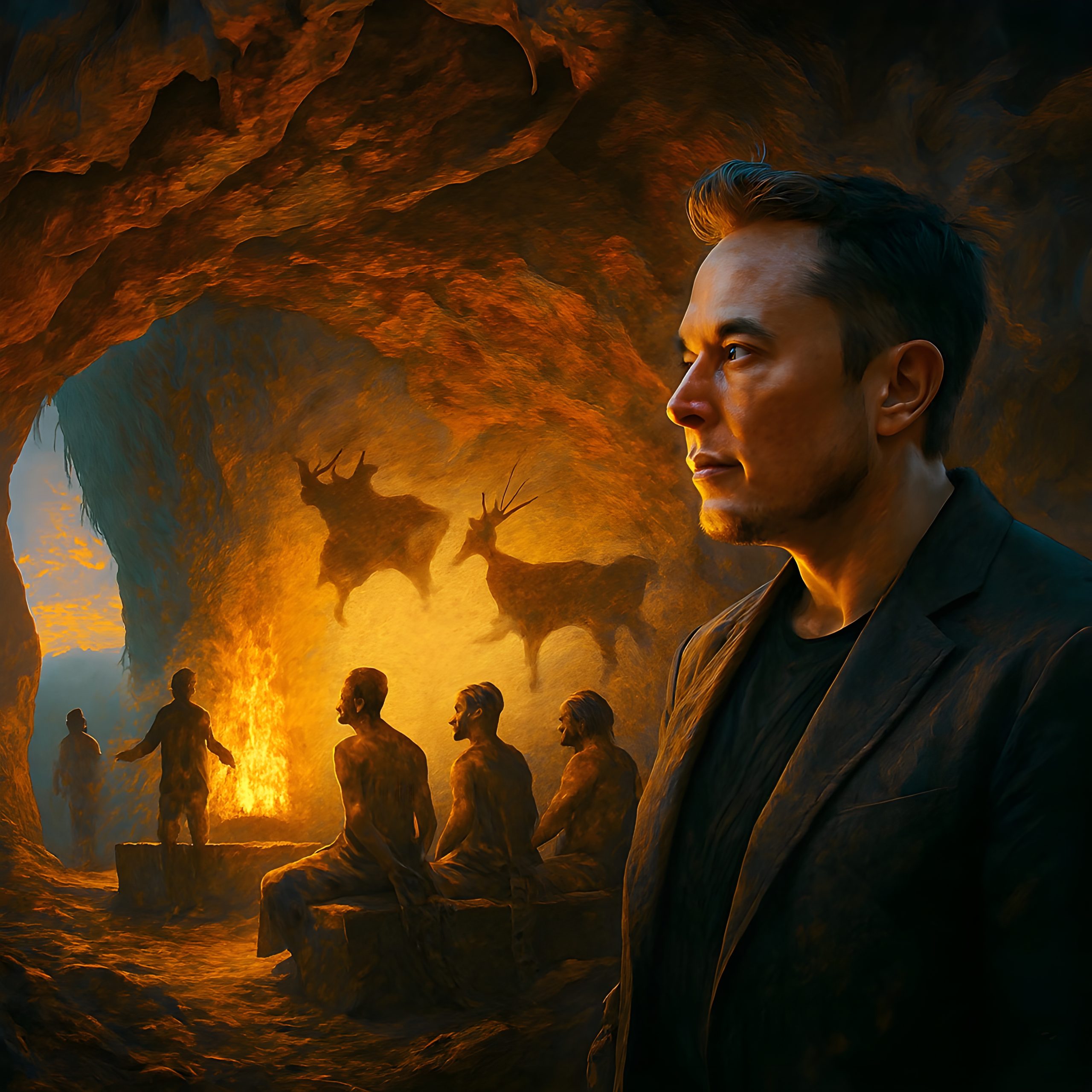Copyright Wccftech

Some consider Elon Musk a visionary, others a skilled grifter. Regardless of his supposed merits or de-merits, one has to concede that Musk is one of the most influential voices in the world right now, and when he enunciates his vision about the future of smartphones, everyone should pay attention. Elon Musk's vision resembles Plato's cave: "You’ll have AI on the server side communicating with AI on your device - formerly known as a phone - and generating real-time video of anything you could possibly want" Elon Musk was a participant in a recent Joe Rogan podcast, where he discussed - among other things - his vision for the future of smartphones: "What we’ll call a phone will really be an edge node for AI inference with some radios to connect. Essentially, you’ll have AI on the server side communicating with AI on your device - formerly known as a phone - and generating real-time video of anything you could possibly want. There won’t be operating systems or apps in the future; it’ll just be a device that’s there for the screen and audio, and to put as much AI on the device as possible.” By using some inference, we can distill Elon Musk's vision of the future for smartphones into the following byte-sized intel: AI agents would communicate with each other in real-time, akin to phone calls today. Any content that you see on your screen would be generated by AI, which presumably includes digital avatars for face-to-face meetings. No built-in apps or an operating system, with AI agents creating any utility app that is needed within a second or two. For instance, if you need a digital map for navigation purposes, onboard AI resources would be able to create an interface as well as its backend libraries and other resources in an instant. The device - formerly a smartphone - would simply act as a conduit for consuming visual and audio content, and act as a platform for onboard AI resources. Plato's allegory of the cave The allegory envisions a number of people chained inside a cave since birth, incapable of seeing each other or anything else of substance apart from shadows projected on to the cave's walls from the burning fire. The shackled prisoners mistake those shadows for reality, having known of nothing else of import. It is only when a person is freed from the cave and enters the "real world" that his perception about reality changes. In what is a striking similarity with Plato's allegory of the cave, Elon Musk's vision for smartphones would increasingly force upon us AI-synthesized perception: we will increasingly rely upon AI-created videos for entertainment, interact with each in AI-created virtual worlds via digital avatars, listen to AI-created songs, and content. What's more, eventually such devices will be miniaturized to fit right into our brains, possibly unleashing an AI singularity, where we are reduced to mere automatons, relying wholly on AGI-influenced perception. And, it is here that Elon Musk's brain interface company, Neuralink, comes into the picture. Interestingly, Elon Musk's vision of the future for smartphones aligns with a supposed 'Apple Killer' that OpenAI is already creating in collaboration with the famous Apple designer, Jony Ive. As per the latest available tidbits, the device will have the following characteristics: t is expected to be a screenless, pocket-sized device. It will have contextual awareness via a suite of sensors, including cameras and microphones. The device will be able to run OpenAI's tailored AI models locally, with cloud computational support available for more compute-intensive tasks. The device will be able to communicate with its peers, akin to what we currently do with smartphones. The device won't bear the form factor of a wearable. Do you think an AI singularity event is unavoidable now? What are your thoughts on Elon Musk's vision for smartphones? Let us know your thoughts in the comments section below.



